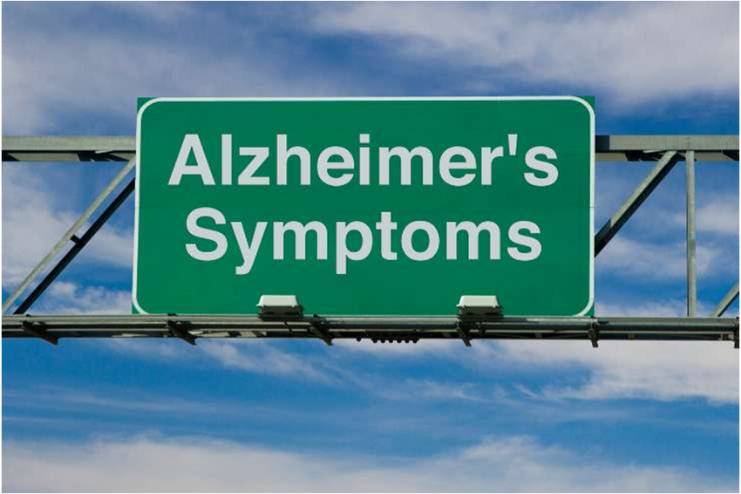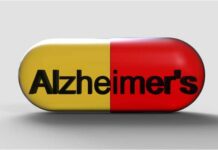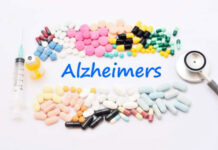Affiliate Disclaimer
Some links in this article are affiliate links. We may earn a small commission if you make a purchase through these links, at no extra cost to you. We only recommend products we find useful to our readersNational Alzheimer’s Disease Awareness Month, which takes place every November, raises critical attention to one of the most challenging illnesses that affect millions of people worldwide.
This month, the reality of Alzheimer’s disease, a degenerative neurological condition that affects memory, thought, and behavior, is brought to light. It is not merely a time for observance but a call to action, urging people to learn more about dementia, help those affected, and support continued research.
Raising awareness of the disease as a whole helps communities eliminate the stigma attached to Alzheimer’s, encourages early detection, and emphasizes the value of care for patients and their families. By recognizing the complexity of this illness, we promote compassion and pave the way for the treatment, management, or even prevention of Alzheimer’s disease in the future.
Understanding Alzheimer’s Disease
Alzheimer’s disease is a degenerative neurological disorder that progressively deteriorates everyday functioning, memory, and cognitive ability. When it first starts, people may have minor memory problems like losing things or forgetting recent discussions. The severity of the symptoms increases with the progression of the disease, impacting logic, language, and the capacity to carry out daily routines.
Alzheimer’s is the most prevalent cause of dementia, causing between 60 and 80 percent of dementia cases. It is a particularly debilitating type of dementia since it ultimately results in significant cognitive impairment and loss of independence. In contrast to other forms of dementia, such as vascular or Lewy body dementia, Alzheimer’s dementia includes unique symptoms, such as the early deterioration of short-term memory.
The Alzheimer’s Association estimates that around 5.8 million Americans have Alzheimer’s disease. It affects one out of ten adults 65 and older, and almost one out of three people 85 and older have it. If medical advances do not prevent or treat Alzheimer’s disease, this figure may increase to 13.8 million by 2060.
Alzheimer’s Disease Symptoms

Alzheimer’s disease symptoms develop gradually over several years. People may occasionally mistake these symptoms for those of other illnesses and initially attribute them to aging. Each person experiences the symptoms at a distinct rate of progression. We can broadly categorize Alzheimer’s disease symptoms into three stages.
Early-stage symptoms: Memory loss is the primary sign of Alzheimer’s disease in its early stages. Early-stage Alzheimer’s disease patients, for instance, may lose things, struggle to remember the names of places and objects, ask the same questions over and over again, and more. Periods of confusion, rising worry, or agitation are common indicators of mood swings.
Mid-stage symptoms: Memory issues will worsen as Alzheimer’s progresses. The illness can make it harder for a person to recognize friends and family and remember the names of individuals they know. Additional symptoms, like growing disorientation and confusion, could also appear.
For instance, getting lost, not knowing the time of day, engaging in repeated, impulsive, or obsessive behavior, and having trouble sleeping. A person with Alzheimer’s disease typically needs assistance with daily living by this point.
Late-stage symptoms: As Alzheimer’s disease progresses, its symptoms get worse and can be upsetting for the affected individual as well as their friends, family, and place of employment. Delusions and hallucinations may occur intermittently during the illness, but they may worsen as it advances. Alzheimer’s patients can occasionally be aggressive, demanding, and wary of anyone around them.
The Stages of Alzheimer’s Disease
There are five distinct stages of Alzheimer’s disease progression, each with its own set of challenges and changes.
Phase 1: Alzheimer’s disease in preclinical stages: Alzheimer’s disease is silently working in the brain at this point, but the symptoms are barely noticeable. Years pass before obvious symptoms appear, and subtle brain abnormalities are frequently only detected in research settings by genetic testing or sophisticated imaging.
Phase 2: Alzheimer’s-related mild cognitive impairment (MCI): This stage brings modest memory issues and occasional confusion, such as forgetting recent discussions or losing things more often. While these alterations might appear small, they frequently mark the start of Alzheimer’s-related deterioration.
Phase 3: Alzheimer’s disease-related mild dementia: Memory loss becomes more noticeable at this point, and everyday tasks may become challenging. When managing funds or remembering appointments becomes difficult, people may require occasional help, indicating an early need for formal support.
Phase 4: Alzheimer’s disease-related moderate dementia: at this stage, symptoms start having a significant influence on daily living, and behavioral disturbances like anxiety, mood swings, or impatience become more prevalent. Consistent carer support becomes crucial as dependency rises.
Phase 5: Severe Alzheimer’s disease-related dementia: In the last stage, people are entirely dependent on others to take care of them and frequently have trouble identifying loved ones. Comprehensive treatment is required for severe memory loss, decrease in mobility, and other health issues, underscoring the significant toll Alzheimer’s disease takes on both patients and caregivers.
Causes, Diagnosis, and Treatment of Alzheimer’s Disease

Causes: The loss of brain cells is the primary cause of Alzheimer’s disease, as it is for all forms of dementia. Since it is a neurodegenerative disease, the death of brain cells occurs gradually. Alzheimer’s patients have progressively fewer neuron cells and connections in their brain tissue, and little deposits called plaques and tangles accumulate on the nerve tissue.
Diagnosis: Doctors suspect Alzheimer’s when a person exhibits memory loss, cognitive decline, or behavioral abnormalities impairing their ability to carry out daily tasks. Generally, friends and family can identify dementia signs before the patient does. Alzheimer’s disease cannot be diagnosed with a single test. A doctor will inquire about the patient’s symptoms, experiences, and medical history.
Additionally, the doctor may perform neurological function tests to evaluate the patient’s balance, senses, and reflexes, blood or urine tests, a brain CT or MRI scan, genetic testing, and cognitive and memory tests to evaluate the patient’s capacity for thought and memory.
Treatment: There is no known cure for Alzheimer’s disease. However, medications that help slow down the symptoms for a short time. People with early—to mid-stage Alzheimer’s disease may be administered galantamine, rivastigmine, and donepezil. Rivastigmine can also be used as a patch. The most recent guidelines recommend using these medications even in the disease’s later, more severe stages.
These medications increase acetylcholine, a chemical in the brain that facilitates communication between nerve cells. Currently, only professionals like neurologists or psychiatrists can prescribe them.
Importance of Early Detection in Alzheimer’s
Early detection of Alzheimer’s disease provides a crucial window to slow its progress and improve quality of life. Identifying Alzheimer’s in its early stages allows people to benefit from therapy and lifestyle changes. Even though there is no cure, early therapy is the most effective way to maintain memory and independence for as long as feasible.
Early diagnosis gives people access to clinical trials, which provide advanced treatment options that might not otherwise be available. Clinical trials offer potential experimental treatments and interventions. In addition to helping the patient, participating in these trials advances the larger goal of comprehending and preventing Alzheimer’s disease globally.
Another significant advantage of early discovery is future planning. Early diagnosis allows people and families to make well-informed decisions regarding financial planning, legal issues, and care preferences while the person can still actively engage. Thanks to this proactive approach, the patient and their loved ones can prepare, adapt, and establish support systems that promote comfort of mind.
Conclusion
Alzheimer’s disease is a life-changing illness that has a multifaceted impact on both individuals and their families. Every phase of awareness and action, from managing symptoms and early discovery to compassionate care, is critical. We can tackle Alzheimer’s with empathy and resolve it through shared understanding, promoted by awareness months and community support.
Even though there is currently no treatment, there is hope for the future because of continued research and early therapies, which could mean that Alzheimer’s won’t have to take over people’s lives. By supporting, educating, and fighting for change that benefits everyone affected by Alzheimer’s, we stand firm together.
FAQs:
What causes Alzheimer’s disease?
Age, lifestyle, and genetics are some of the complex brain changes that lead to Alzheimer’s disease. Abnormal protein accumulation in the brain, particularly beta-amyloid plaques and tau tangles, harms cells and impacts memory and cognition.
Who is at risk for Alzheimer’s?
The main risk factor is age, with those over 65 being more vulnerable. Additionally, genetics come into play, particularly for people who have a family history of Alzheimer’s. Cardiovascular health, head trauma, and lifestyle choices like nutrition, exercise, and mental activity are additional risk factors.
Is there a cure for Alzheimer’s disease?
Alzheimer’s disease currently has no known cure, although there are treatments that can help control symptoms and enhance quality of life. Clinical studies are still investigating intriguing medications targeted at slowing or maybe reversing the disease, and researchers are making great strides toward better treatments and preventive measures.
References
- https://www.alz.org/alzheimers-dementia/what-is-alzheimers
- https://www.ohsu.edu/brain-institute/understanding-alzheimers-disease
- https://www.nia.nih.gov/health/alzheimers-and-dementia/alzheimers-disease-fact-sheet
- https://pmc.ncbi.nlm.nih.gov/articles/PMC11095490/
- https://www.mayoclinic.org/diseases-conditions/alzheimers-disease/symptoms-causes/syc-20350447
- https://www.nhs.uk/conditions/alzheimers-disease/symptoms/
- https://my.clevelandclinic.org/health/diseases/9164-alzheimers-disease
- https://www.alz.org/alzheimers-dementia/stages
- https://www.hopkinsmedicine.org/health/conditions-and-diseases/alzheimers-disease/stages-of-alzheimer-disease
- https://alzheimer.ca/en/about-dementia/what-alzheimers-disease/stages-alzheimers-disease
- https://www.healthline.com/health/stages-progression-alzheimers
- https://alzheimer.ca/en/about-dementia/do-i-have-dementia/how-get-tested-dementia-tips-individuals-families-friends/10
- https://pmc.ncbi.nlm.nih.gov/articles/PMC6935598/
- https://www.alz.org/professionals/public-health/public-health-topics/early-detection-diagnosis
- https://diagnostics.roche.com/global/en/article-listing/early-diagnosis-of-alzheimer-disease-and-mild-cognitive-impairme.html
- https://www.alzheimers.org.uk/about-dementia/symptoms-and-diagnosis/dementia-diagnosis/benefits-of-getting-dementia-diagnosis
- https://www.alz.org/alzheimers-dementia/research_progress/earlier-diagnosis
- https://wai.wisc.edu/benefits-of-early-diagnosis/
- https://www.alz.org/alzheimers-dementia/what-is-alzheimers
- https://my.clevelandclinic.org/health/diseases/9164-alzheimers-disease
- https://www.mayoclinic.org/diseases-conditions/alzheimers-disease/symptoms-causes/syc-20350447
- https://www.mayoclinic.org/diseases-conditions/alzheimers-disease/diagnosis-treatment/drc-20350453
- https://www.medicalnewstoday.com/articles/159442#causes
- https://www.nhs.uk/conditions/alzheimers-disease/treatment/
In this Article





















